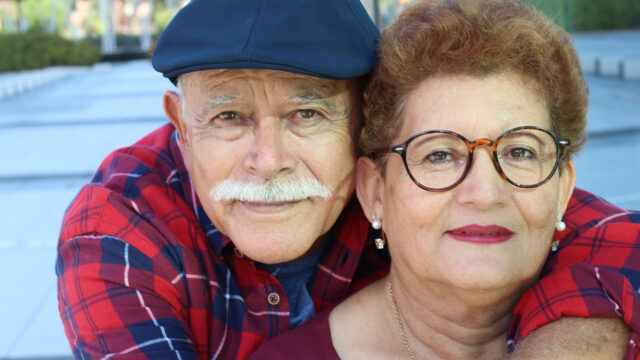Courtesy of Athira Pharma, Psychiatrist and Medical Director Bernardo Ng of the Sun Valley Research Center joins Suzanne to talk about specific challenges for the Latino community in signing up for Alzheimer’s clinical trials.
What are the specific challenges? Dr. Ng says, “One of the things about the Latino community is that they trust their doctors blindly, I’ll trust whatever he or she tells me to do. And then when you put on the table, the option that we don’t have any more treatments for you, or you keep on getting worse, or we detected that this is going on, this would be a good time for you to participate in a clinical trial, to confirm that you do have or don’t have Alzheimer’s. At that point they say, well, but why aren’t you treating me with the usual things? Why a research trial? And the word research is very heavy, right?
“We need to make a greater effort to communicate the fact that, if anything, clinical trials are even more strict. When a molecule has passed so many tests already, that it’s proven to be safe. You’re in a clinical trial. You’re observed, supervised, your blood test or urine tests are done more frequently. Brain scans if necessary. But then it feels like it’s too invasive, and it’s hard. [It was just] until a couple of years ago that the first antibody was approved for Alzheimer’s, and just this year, another one. Before that, we’ve been prescribing the same medications for about 20 years. So we’re so excited and so optimists think about the fact that there are more trials going on. They have to prove that they work or not work, but there will be more options for our patients.”
“Let’s say the medication doesn’t work for you, or maybe we find out later on that you were on placebo, right? Whatever you did is already adding to the information, to the data, so that other people can benefit in the future. And you know what, the Latino population likes that they are able to help others. And that has helped us overcome some of the fears. And the people that do participate, they said, look, I’m gonna do whatever. I know this may not help me right now, but unless we do this, we’re not gonna be able to help other people.”
Dr. Ng explains how a treatment gets developed to the point of being ready for a clinical trial. “This perfect chain of events that has to happen. Yes, some people in a laboratory somewhere, working with rats, figure out that there’s this molecule. They are super genius people, right, they come up with these formulas, tested with electronic microscopes. And then they start pushing that molecule forward, right? Then [it’s tested] with humans who are healthy and ok, well, you know, it’s fine, it’s safe. Let’s move forward. By the time we participate, these are usually phase 3 studies, sometimes phase 2, but usually phase 3, molecules have walked a long pathway already. So at that moment, we know a lot about their safety, that it’s tolerable, and maybe we participate in studies where they’re trying to figure out the right dose.
“And another thing I wanna mention about placebo, more and more the placebo phases of the studies have become shorter. That’s only prove the concept. But from then on, most of the studies now have an open label section, where everybody sooner or later will receive the benefit of being on the active medication. And that also allow us to be able to see safety in the long run. So by the time I’m offering this to my patients. I’m very confident. A lot of molecules don’t make it to phase 3 and, and the ones that do are worth moving forward and completing the whole process.”
Contact the Sun Valley Research Center in southern California at (760) 545-0123.
Learn more:
* Sun Valley Research Center: https://sunvalleyb.com/
* Athira Pharma: https://www.athira.com/
* Bernardo Ng: https://sunvalleyr.com/ourteam/bernardo-ng-md/
* Hear more Alzheimer’s-related podcasts from Athira Pharma: https://answersforelders.com/athira-pharma/
Answers for Elders is part of the SeniorResource Network: https://www.seniorresource.com/
Check out our affiliate podcast Alzheimer’s Speaks: https://alzheimersspeaks.com/













